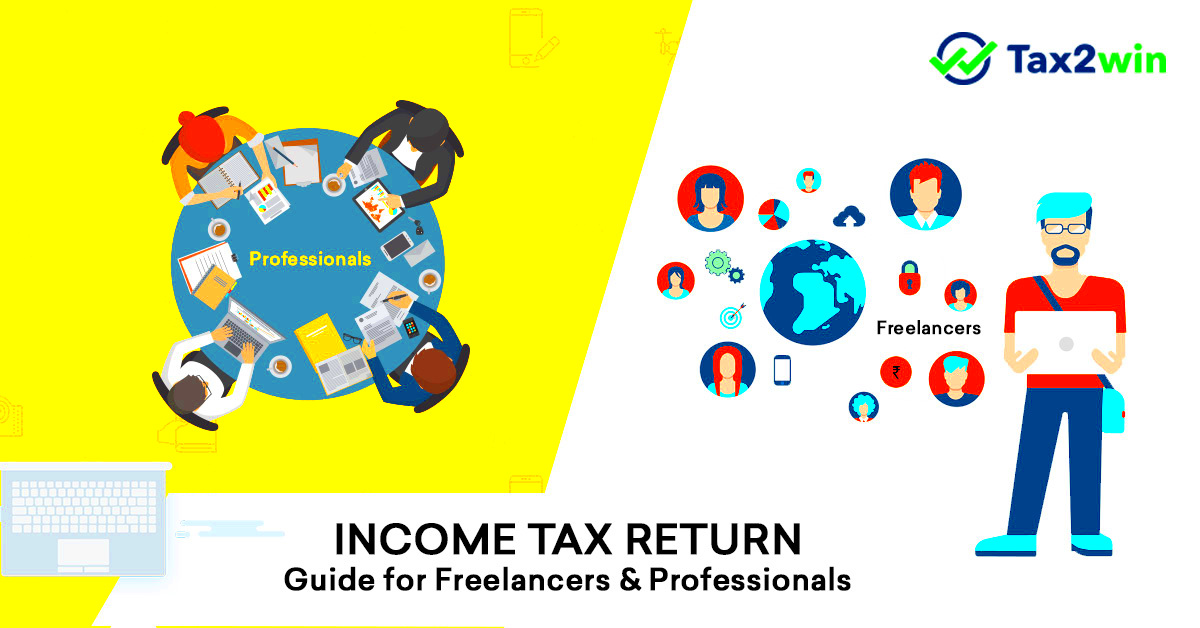The obscurity and difficulty of taxation on freelance income especially affects new comers to freelancing. Unlike employees in a conventional sense, freelancers have to declare their earnings and remit taxes directly to the government. Thus it is very important to know the taxes that apply in your specific circumstance. Therefore, Freelancers need to carefully track their income and expenses as this information is vital when paying taxes at the end of the year. This chapter outlines what guidelines should be followed regarding payment of freelance income taxes so that you remain compliant.
Types of Freelance Income and Tax Implications

Various channels can be used by freelancers for income and it’s important to understand how each type is taxed. Below are some common types of freelance incomes:
- Contract Work: Payment received for specific projects or services rendered. This income is typically reported on a 1099 form.
- Selling Products: Income generated from selling physical or digital products. This may include eBooks, crafts, or designs.
- Consulting Fees: Earnings from providing expert advice in a specific field. This income is also reported on a 1099 form.
- Affiliate Marketing: Commissions earned by promoting products or services through links. This can vary in terms of taxation based on the platform.
Various tax consequences arise from every one of these income categories, but typically they’re all liable for income tax. Freelancers’ records of what they earn should be precise since otherwise failing to declare their earnings would attract a penalty. To appreciate all the details regarding these types or how they relate to your total tax obligations, consulting a tax expert is crucial.
Also Read This: How to Become a Freelance Grant Writer and Find Opportunities
How to Report Freelance Income

There are several essential steps involved in the process of reporting freelance earnings, so it is crucial to remain organized all through the year. This is how you report your freelance income:
- Keep Detailed Records: Maintain accurate records of all income and expenses. This includes invoices, receipts, and bank statements.
- Choose the Right Tax Form: Most freelancers report their income using the Schedule C form, which allows you to detail your business income and expenses.
- Fill Out Your Tax Forms: In addition to Schedule C, you may also need to fill out Schedule SE for self-employment tax.
- Report Any Other Income: If you have income from other sources, such as investments, be sure to report this on the appropriate forms.
When you are done filling out your forms, just make sure to file them with the IRS on time. If taxes are due, think about submitting estimated tax payments throughout the year in order not to incur penalties. Thus, this will help streamline the procedure and give you freedom to concentrate more on your freelance work.
Also Read This: How to Give Access to a Developer on Fiverr for Your WordPress Site
Deductions and Expenses for Freelancers
Taxable income helps in the computation of how much tax they will pay. So, if you have incurred any cost in running a business you can deduct it from your taxable income. Reducing the amount of taxes owed is possible through this deduction. It is important for every freelancer to understand what expenses are tax-deductible. Year-long monitoring of expenses will enable freelancers to arrive at maximum savings during taxation period. Below is an overview of some common deductions that freelancers may request:
- Home Office Deduction: If you work from home, you can deduct a portion of your rent or mortgage, utilities, and internet costs based on the size of your home office.
- Office Supplies: Items like paper, pens, and software necessary for your work are deductible.
- Professional Services: Fees paid to accountants, lawyers, or consultants related to your business can be claimed.
- Marketing Expenses: Costs for advertising, website maintenance, and promotional materials can also be deducted.
- Travel Expenses: If you travel for business, keep track of travel costs, including flights, hotels, and meals.
Keeping proper records of all expenditures is extremely important. Utilizing accounting software will assist in organizing your financials. Proper documentation makes it easier to claim those deductions, so remember to KEEP your receipts and invoices!
Also Read This: How to Cancel a Gig on Fiverr
Self-Employment Tax for Freelancers
Being a freelancer means that you are regarded as self-employed and hence, must pay self-employment tax alongside regular income tax. This type of tax pays for Social Security and Medicare taxes that are normally deducted from the salary of employees. It is important for freelancers to understand this tax because it can have a major effect on their financial situation.
This is how the self-employment tax seems to work:
- Tax Rate: The current self-employment tax rate is 15.3%, which consists of 12.4% for Social Security and 2.9% for Medicare.
- Income Thresholds: You only pay Social Security tax on the first $147,000 of your net earnings (for the 2022 tax year). After that, only the Medicare portion applies.
- Deductions: You can deduct half of your self-employment tax when calculating your adjusted gross income, which helps reduce your taxable income.
To calculate your self-employment tax, you'll need to fill out Schedule SE along with your regular tax return. Staying informed about self-employment tax can help you budget effectively and avoid any surprises during tax season.
Also Read This: How to Separate Yourself on Fiverr
Tax Filing Deadlines for Freelancers
For freelancers, it is important to know about tax filing deadlines to evade penalties as well as interest on unpaid taxes. Upon contrast with conventional workers, gaming contractors have dissimilar schedules for presenting their poverty declarations. Therefore, consider the following:
| Deadline | Description |
|---|---|
| April 15 | Deadline for filing your federal income tax return and paying any tax owed for the previous year. |
| Quarterly Estimated Payments | Freelancers must make estimated tax payments four times a year, typically due on April 15, June 15, September 15, and January 15. |
It’s crucial to keep these deadlines in mind to avoid late fees. If you can’t file by the April deadline, consider filing for an extension, which gives you until October 15. However, keep in mind that an extension only applies to filing your return, not to paying any taxes owed.
In fact, by being organized and making plans in advance, you can be able to handle the deadlines with ease thereby ensuring that your freelance business operates effectively.
Also Read This: How to Get Fiverr Buyer Requests: A Comprehensive Guide
Tips for Managing Taxes as a Freelancer
Being a freelancer and handling taxes may seem intimidating but if you have provided strategies it will not be. Some tips for helping you navigate your tax obligations and make things easier are as follows:
- Keep Detailed Records: Maintain accurate records of all income and expenses throughout the year. Use accounting software or a simple spreadsheet to track your earnings and deductions.
- Set Aside Money for Taxes: Since taxes aren't withheld from your income, it's wise to set aside a portion of each payment you receive. A common recommendation is to save 25-30% of your earnings to cover taxes.
- Make Estimated Tax Payments: Don’t wait until tax season to pay your taxes. Make quarterly estimated tax payments to avoid penalties and reduce the stress of a large tax bill at the end of the year.
- Consult a Tax Professional: If you're unsure about your tax obligations or deductions, consider hiring a tax professional. They can provide guidance tailored to your situation and help you maximize your deductions.
- Stay Informed: Tax laws change frequently. Keep yourself updated on any changes that may affect your freelance income. Subscribing to tax newsletters or joining freelancer forums can help.
These tips will help you have dominion over your tax situation and shift your attention towards expanding freelance business than worrying about taxes.
Also Read This: What It’s Like to Work at Fiverr
Frequently Asked Questions about Freelance Taxation
Often freelancers have a lot of inquiries concerning tax issues. Below is a collection of the commonest questions and their corresponding answers:
- Do I need to pay taxes if I earn less than $600?
Yes, you are still required to report all income, regardless of the amount, even if you don’t receive a 1099 form. - Can I deduct my home office expenses?
Yes, if you use a specific area of your home exclusively for your freelance work, you can claim a portion of your rent, utilities, and other related expenses. - What records should I keep for tax purposes?
Keep receipts, invoices, bank statements, and any documentation related to your business expenses and income. This will help you substantiate your deductions if needed. - Are my freelance earnings subject to self-employment tax?
Yes, freelance earnings are subject to self-employment tax in addition to regular income tax. - What if I can't pay my taxes by the deadline?
If you can't pay your taxes on time, file your return anyway and pay as much as you can. You can set up a payment plan with the IRS for the remaining balance.
Conclusion on Freelance Income Taxation
Having the knowledge and skills to handle taxation on freelance incomes is vital for anyone working on a gig. Knowing what you owe in taxes, keeping proper records as well as utilizing deductibles can help you to reduce your tax obligations and prevent any awful surprises. Bear in mind that taxation is part of running a business; thus, organizing yourself throughout the year will make your life much easier come tax season. You shouldn’t hesitate to consult a professional if need be and keep updating yourself about the changing tax laws. By doing so, you will be in a position to identify with confidence your freelance taxes while concentrating on what you do best- your job!




